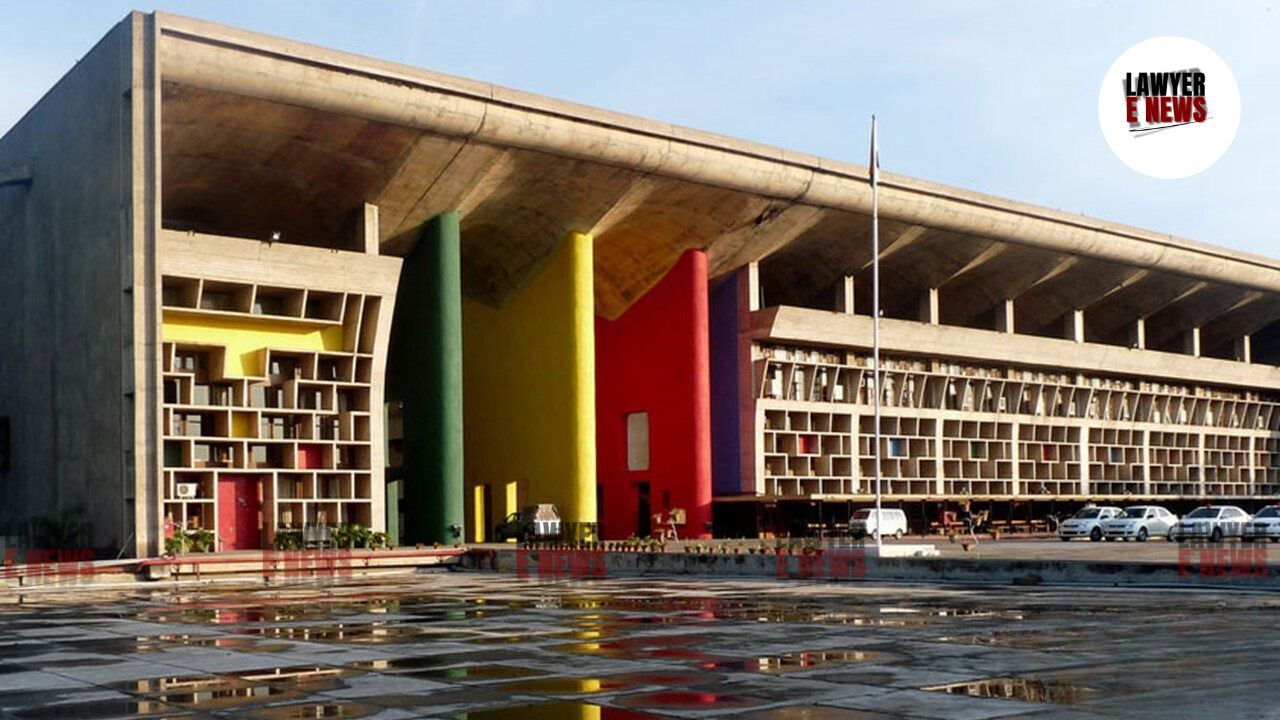-
by Admin
15 February 2026 2:36 AM



Punjab and Haryana High Court dismissed an appeal filed by ICICI Lombard General Insurance Company challenging the Motor Accident Claims Tribunal (MACT) award of ₹79,15,184 to the family of Vijaypal, a deceased ITBP constable. The insurance company alleged collusion between the claimants and the driver to extort compensation in a hit-and-run case. The court upheld the MACT's ruling, affirming that negligence was proven based on the preponderance of probability, a standard distinct from criminal cases.
The case arose from a fatal accident on February 6, 2016, when Vijaypal, riding a motorcycle to work, was hit by a car driven rashly by Hemant Bhardwaj. Vijaypal succumbed to his injuries at the General Hospital, Jhajjar. His brother Satpal, following on a separate motorcycle, witnessed the accident, and Sandeep, an eyewitness, recorded the car's registration number, which led to an FIR. The MACT awarded compensation of ₹79,15,184 to Vijaypal’s family, holding the driver and the insurance company liable.
ICICI Lombard appealed the decision, questioning the car's involvement, arguing that the FIR initially named an unknown vehicle, and alleging collusion between the driver and claimants to defraud the insurance company.
The insurance company's appeal centered on whether the car driven by Hemant Bhardwaj was involved in the accident and if the MACT erred in awarding compensation based on allegedly contradictory testimonies. They also raised the issue of collusion between the claimants and the driver to secure the insurance payout, especially since the driver was later acquitted in criminal proceedings.
Justice Deepak Gupta clarified that motor accident claim cases are adjudicated based on the preponderance of probability, not the stringent "beyond reasonable doubt" standard applied in criminal cases. The court observed that the negligence of the driver, Hemant Bhardwaj, was sufficiently proven in the tribunal, with testimonies from Satpal and Sandeep corroborating the sequence of events. Despite discrepancies, the evidence supported the conclusion that the accident occurred due to the driver’s rash and negligent driving.
The court acknowledged some inconsistencies between Satpal’s statements before the Tribunal and in the criminal trial. However, it emphasized that such contradictions did not discredit the overall reliability of his testimony. The court noted that the driver admitted his car’s involvement in the accident but blamed the deceased for the mishap. The driver’s failure to testify in court was also taken as a negative inference against him.
The court gave weight to Sandeep’s testimony, who claimed to have witnessed the accident while on a morning walk. His statement that he noted the car’s registration number was supported by Satpal’s testimony. The court dismissed the insurance company’s argument that Sandeep’s involvement was fabricated, stating that his presence at the scene was plausible and not undermined by contradictions in Satpal’s statements.
The court rejected the insurance company’s reliance on the criminal court’s acquittal of the driver, noting that civil liability in motor accident claims is determined independently of criminal court findings. The court reiterated that the acquittal in the criminal case did not absolve the driver or the insurance company from liability in the MACT proceedings.
ICICI Lombard's claim that the driver colluded with the claimants to stage the accident was dismissed as speculative. The court found no substantive evidence supporting the allegation of fraud or collusion. It ruled that the insurance company had failed to prove any conspiracy between the driver and the claimants to secure compensation.
The court upheld the MACT's award and dismissed the appeal filed by ICICI Lombard, affirming that the negligence of the driver was established based on the preponderance of probability. It reiterated the principle that civil liability in motor accident cases differs from criminal responsibility, and acquittal in a criminal case does not negate liability in MACT claims.
Date of Decision: September 3, 2024
ICICI Lombard General Insurance Company vs. Moni Devi and Others
